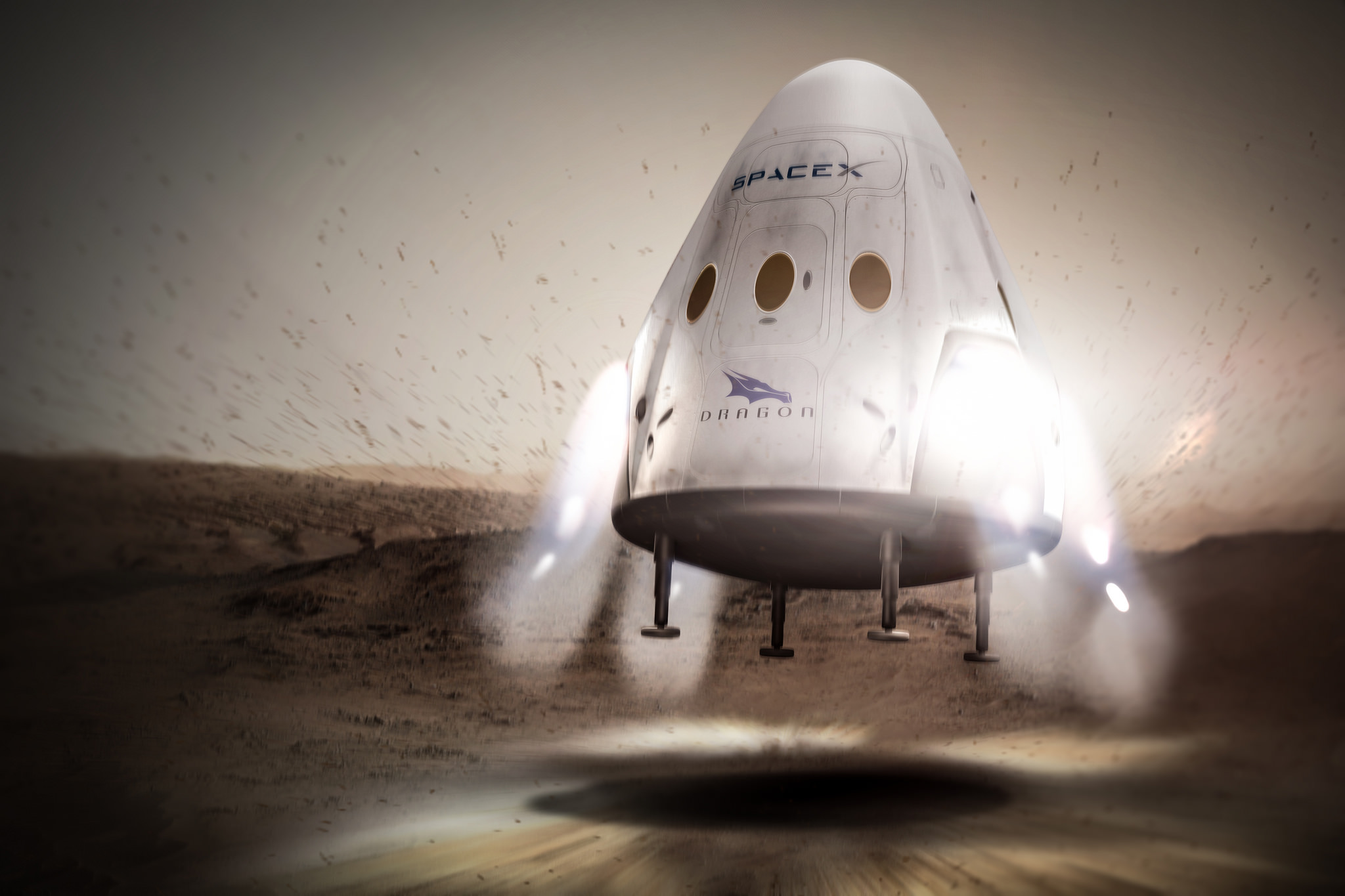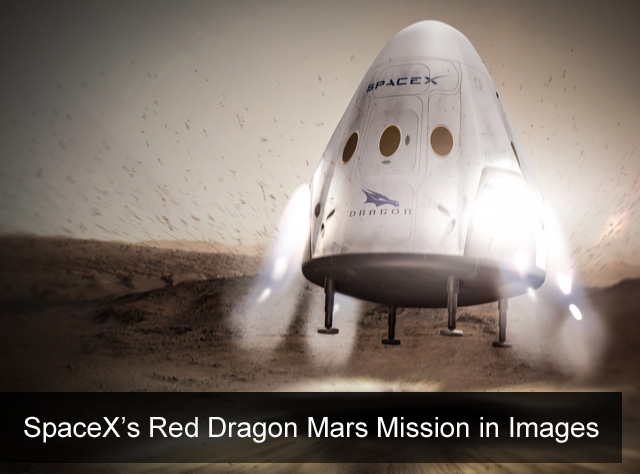SpaceX Will Launch Private Mars Missions as Soon as 2018

Breaking space news, the latest updates on rocket launches, skywatching events and more!
You are now subscribed
Your newsletter sign-up was successful
Want to add more newsletters?

Delivered daily
Daily Newsletter
Breaking space news, the latest updates on rocket launches, skywatching events and more!

Once a month
Watch This Space
Sign up to our monthly entertainment newsletter to keep up with all our coverage of the latest sci-fi and space movies, tv shows, games and books.

Once a week
Night Sky This Week
Discover this week's must-see night sky events, moon phases, and stunning astrophotos. Sign up for our skywatching newsletter and explore the universe with us!

Twice a month
Strange New Words
Space.com's Sci-Fi Reader's Club. Read a sci-fi short story every month and join a virtual community of fellow science fiction fans!
The commercial spaceflight company SpaceX announced on Twitter today that it plans to send its robotic Dragon capsule to Mars as early as 2018.
"Red Dragons will inform the overall Mars architecture," SpaceX representatives tweeted today (April 27), referring to the company's eventual plans to set up a colony on Mars — a key goal of SpaceX and its founder, billionaire entrepreneur Elon Musk.
A source familiar with the company’s plans said the first test flight of a Dragon capsule to Mars would demonstrate technologies needed to land large payloads on the Red Planet. That could include supplies and habitats for Martian explorers. In addition, the source said that SpaceX intends to reveal details of its colonization architecture later this year. [SpaceX's Red Dragon: A Private Mars Mission Plan in Pictures]
"Dragon 2 is designed to be able to land anywhere in the solar system. Red Dragon Mars mission is the first test flight," Musk tweeted today. "But wouldn't recommend transporting astronauts beyond Earth-moon region. Wouldn't be fun for longer journeys. Internal volume ~size of SUV."
In November 2015, SpaceX released a video showing its Dragon V2 capsule — the crewed version of the spacecraft — during a hover test, meant to demonstrate how the capsule would gently lower itself down onto the surface of a distant world.
Last year, a group of NASA scientists explored the possibility of a Red Dragon mission, in which a SpaceX capsule could be used to pick up the rock and soil samples that will be collected by the agency's Mars 2020 rover, and return them to Earth for further study. That mission has not been approved by NASA, nor has SpaceX confirmed that it would participate.
In January 2015, during a Reddit "Ask Me Anything" session, Musk said that plans for the company's "Mars Colonial Transporter" — the spaceflight system that will take humans to and from the Red Planet — would be released by the end of the year, but that has not yet happened. The company is currently developing a rocket called the Falcon Heavy, which the company says will have the capacity to carry humans and cargo to deep-space destinations, even Mars.
Breaking space news, the latest updates on rocket launches, skywatching events and more!
On April 8, SpaceX passed a major milestone in its development of reusable rockets when it successfully landed the first stage of its Falcon 9 rocket on a drone ship. Musk has said that reusable rockets will dramatically lower the cost of going to space, thereby making ambitious, expensive efforts such as Mars colonization more economically feasible.
SpaceX has a contract with NASA to carry cargo to the International Space Station aboard its Dragon space capsules. Orbital ATK is also a current cargo carrier for the agency. Both companies were selected by NASA for the next round of cargo delivery missions, in addition to the Sierra Nevada Corp.
SpaceX and Boeing were selected to carry astronauts to the orbiting laboratory. NASA has said it wants those crewed flights to begin as early as 2017.
NASA has also announced plans to send humans to Mars as soon as the 2030s, although details of the agency's plan still need to be worked out.
Follow Calla Cofield @callacofield. Follow us @Spacedotcom, Facebook and Google+. Original article on Space.com.

Calla Cofield joined Space.com's crew in October 2014. She enjoys writing about black holes, exploding stars, ripples in space-time, science in comic books, and all the mysteries of the cosmos. Prior to joining Space.com Calla worked as a freelance writer, with her work appearing in APS News, Symmetry magazine, Scientific American, Nature News, Physics World, and others. From 2010 to 2014 she was a producer for The Physics Central Podcast. Previously, Calla worked at the American Museum of Natural History in New York City (hands down the best office building ever) and SLAC National Accelerator Laboratory in California. Calla studied physics at the University of Massachusetts, Amherst and is originally from Sandy, Utah. In 2018, Calla left Space.com to join NASA's Jet Propulsion Laboratory media team where she oversees astronomy, physics, exoplanets and the Cold Atom Lab mission. She has been underground at three of the largest particle accelerators in the world and would really like to know what the heck dark matter is. Contact Calla via: E-Mail – Twitter

